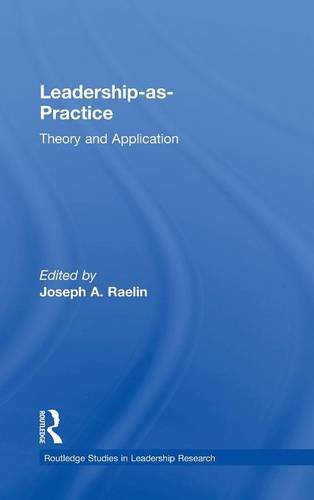

Most ebook files are in PDF format, so you can easily read them using various software such as Foxit Reader or directly on the Google Chrome browser.
Some ebook files are released by publishers in other formats such as .awz, .mobi, .epub, .fb2, etc. You may need to install specific software to read these formats on mobile/PC, such as Calibre.
Please read the tutorial at this link. https://ebooknice.com/page/post?id=faq
We offer FREE conversion to the popular formats you request; however, this may take some time. Therefore, right after payment, please email us, and we will try to provide the service as quickly as possible.
For some exceptional file formats or broken links (if any), please refrain from opening any disputes. Instead, email us first, and we will try to assist within a maximum of 6 hours.
EbookNice Team

Status:
Available0.0
0 reviewsThis book develops a new paradigm in the field of leadership studies, referred to as the "leadership-as-practice" (L-A-P) movement. Its essence is its conception of leadership as occurring as a practice rather than residing in the traits or behaviours of particular individuals. A practice is a coordinative effort among participants who choose through their own rules to achieve a distinctive outcome. It also tends to encompass routines as well as problem-solving or coping skills, often tacit, that are shared by a community. Accordingly, leadership-as-practice is less about what one person thinks or does and more about what people may accomplish together. It is thus concerned with how leadership emerges and unfolds through day-to-day experience. The social and material contingencies impacting the leadership constellation – the people who are effecting leadership at any given time – do not reside outside of leadership but are very much embedded within it. To find leadership, then, we must look to the practice within which it is occurring.
The leadership-as-practice approach resonates with a number of closely related traditions, such as collective, shared, distributed, and relational leadership, that converge on leadership processes. These approaches share a line of inquiry that acknowledges leadership as a social phenomenon. The new focus opens up a plethora of research opportunities encouraging the study of social processes beyond influence, such as intersubjective agency, shared sense-making, dialogue, and co-construction of responsibilities.